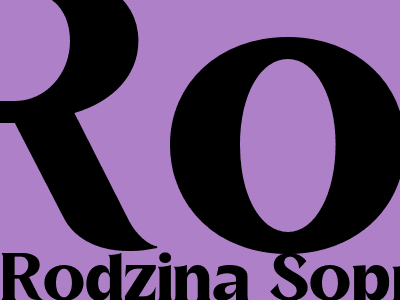Rodzina Soprano: A Comprehensive Analysis of the Iconic HBO Series
Introduction
Rodzina Soprano, also known as The Sopranos, is an acclaimed HBO drama series that captivated audiences for six seasons from 1999 to 2007. Created by David Chase, the show follows the life of Tony Soprano, a New Jersey mob boss struggling with balancing his family and criminal life.
Characters and Relationships
The series features a complex and intricate cast of characters, each with their own motivations and conflicts. At the heart of the show is Tony Soprano, a ruthless yet relatable figure whose struggles with mental health and family life make him a compelling protagonist.
Tony's wife, Carmela, is a strong and independent woman who tries to maintain her family's stability despite her husband's criminal activities. Their children, Meadow and AJ, grapple with their own adolescent issues while being affected by their father's profession.
Themes and Analysis
Rodzina Soprano explores various themes such as family, violence, and morality. It delves into the psychological effects of living in a criminal world and the toll it takes on Tony and his loved ones.
The show also examines the generational differences between Tony and his children. While Tony tries to hold on to traditional values, Meadow and AJ are more influenced by modern society and its challenges.
Critical Reception and Legacy
Rodzina Soprano received widespread critical acclaim for its writing, acting, and overall production quality. It won numerous awards, including 21 Primetime Emmys and five Golden Globes.
The series has left a lasting impact on popular culture and television history. It is considered one of the greatest dramas ever made and continues to be studied and discussed.
Psychological Complexity
A key aspect of Rodzina Soprano is the psychological complexity of its characters. Tony struggles with depression and anxiety, which manifest in panic attacks and mood swings. His relationships with his family and crew are often strained due to his mental health issues.
Dr. Melfi, Tony's therapist, provides invaluable insights into his psyche. Their therapy sessions delve into Tony's childhood, his relationships with his parents, and his motivations for becoming a mob boss.
Family Dynamics
Family is central to Rodzina Soprano, both as a source of support and a source of conflict. Tony's family values are rooted in traditional Italian culture, with a strong emphasis on loyalty and respect.
However, his criminal activities put a strain on his family life. Carmela and the children often feel isolated and neglected as Tony prioritizes his crew and business over them.
Violence and Its Consequences
Violence is an intrinsic part of Rodzina Soprano's world. Tony and his crew engage in violent acts as a means of asserting their power and maintaining their control over their territory.
The show depicts the consequences of violence in a realistic and unflinching manner. Characters are killed, injured, and traumatized, and the ripple effects of their actions are felt throughout the series.
Themes of Redemption and Morality
Despite their criminal activities, Tony and Carmela grapple with issues of redemption and morality. Tony often expresses remorse for his actions and struggles with the guilt of his past.
The show explores the complexities of good and evil, and the possibility of redemption for even the most flawed characters.
Cultural Impact
Rodzina Soprano has had a profound impact on popular culture. Its characters, storylines, and dialogue have been widely referenced and imitated.
The show's depiction of Italian-American culture, organized crime, and mental health has contributed to a deeper understanding of these topics in mainstream society.

Comments